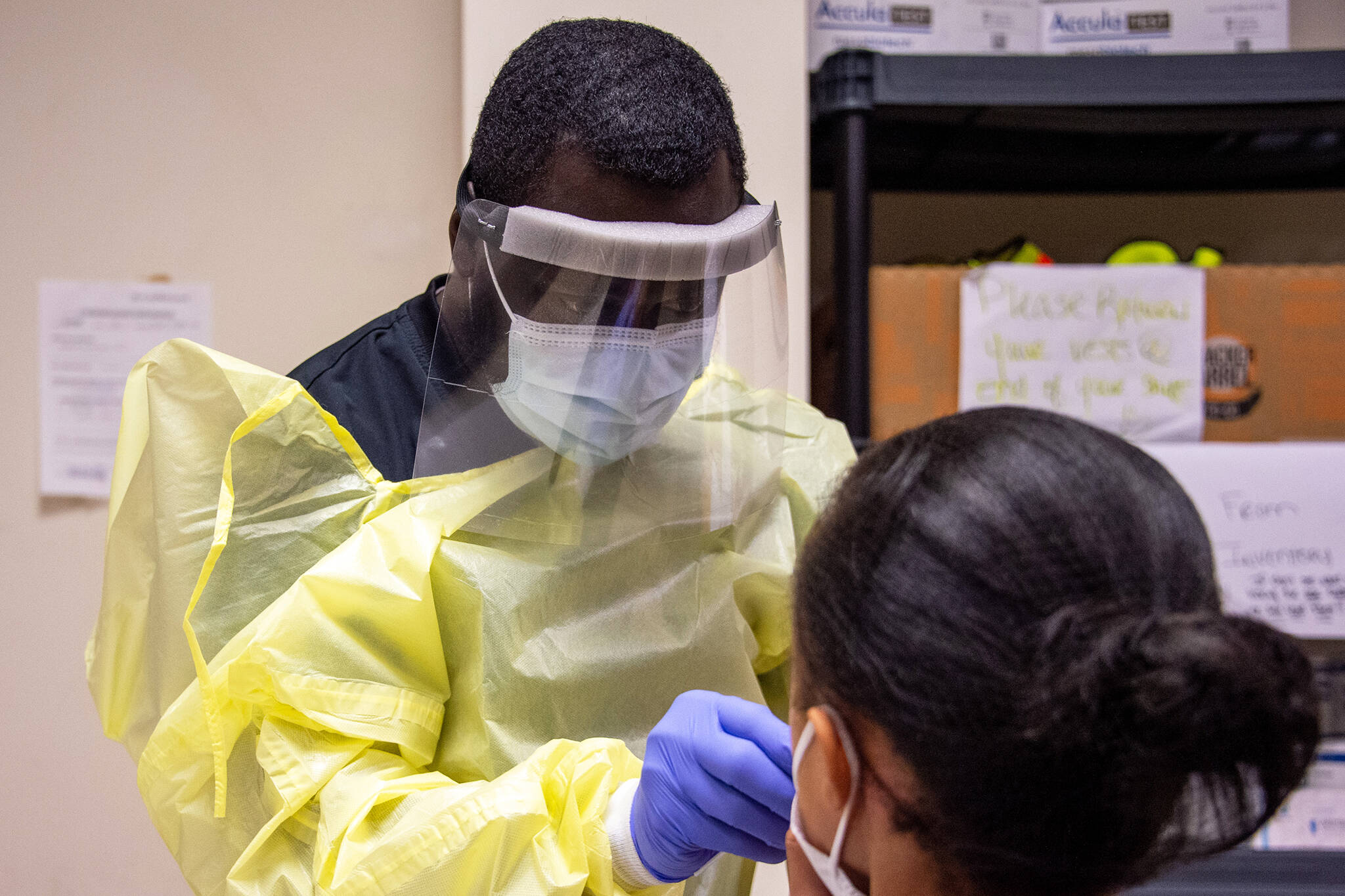
Ontario officials say getting a COVID test should now be considered a luxury
For the duration of the pandemic, PCR testing for COVID-19 has been considered a publicly-funded right in Ontario, with the government urging close contacts of infected patients and/or anyone with respiratory symptoms to get to their nearest assessment centre ASAP.
That was until last week, when officials decided to completely redefine who is eligible for free testing, slashing it to only very specific groups; namely, those who are not only symptomatic, but considered at high-risk for severe illness from the virus.
Residents already scrambling to be able to find a coveted testing appointment in the province were understandably stunned, especially given the fact that daily new case numbers remain higher than ever — which is a major reason why the decision was made in light of resource scarcity.
Ontario has adopted Trump's approach to testing. Don't test and the pandemic will magically disappear.
— (((Herid Fel))) (@heridfan) December 30, 2021
Dr. Kieran Moore, the province's chief medical officer of health, reiterated the new testing rules during a press conference on Thursday, adding that the government is also now prioritizing not just PCRs, but rapid antigen tests, for only the highest-risk settings (in this case, for frontline healthcare workers).
"Given how quickly the Omicron variant has spread, we must preserve these limited resources for those that need them the most to make these tests useful for clinical and public health decision making," Moore said.
He went on to call testing amid such high demand a "luxury" and advised the public not to bother seeking any sort of test to confirm that they're infected if they have symptoms consistent with the virus — a quote that some citizens of a province with free healthcare were not exactly the most impressed to hear.
Oh ok so my taxes are a luxury then. Not paying them this year.
— The Swayze Express (@SwayzeExpress88) January 6, 2022
"Right now, given the high community prevalence of COVID-19, testing is a luxury. Monitoring your symptoms is what every Ontarian should be doing... [symptoms] alone are a high probability of being COVID at present."
Anyone with symptoms is now advised to stay home and isolate for five days if they are fully vaccinated, and ten days if they are partially vaxxed, completely unvaccinated or immunocompromised. Any direct household contacts should isolate for the same amount of time.
If, after the aforementioned duration, you no longer have symptoms, you are free to carry on with life as usual, not that there is much to get out and do in Ontario amid this modified Stage 2 lockdown right now.
If you are a close contact of a confirmed case — though not a household contact — you are asked to self-monitor for symptoms for 10 days, but do not have to quarantine in the meantime.
That's quite a privileged take. Many Ontarians can't afford to take 5 days off work every time they, or a member of their household, gets a cold.
— Nikki S (@NSInTheCity) December 31, 2021
If you feel the need to verify whether you do in fact have COVID-19, you can always head to a private clinic for rapid or PCR testing at a price, though this sort of testing is usually reserved for asymptomatic individuals for travel purposes, not those who are likely infectious.
The federal government is also sending out 140 million more rapid tests nationwide this month for those who didn't snag any during the initial pop-ups or on the black market.
Along with the outpouring of complaints about the lack of access to testing, there is the very real issue of people who have had COVID-19 and need a test to prove as much to travel and return home. As patients can test positive for weeks after-the-fact, the federal government currently accepts a positive molecular test from 14-180 days ago in lieu of a negative result from the last 74 hours.
Latest Videos
Latest Videos
Join the conversation Load comments







